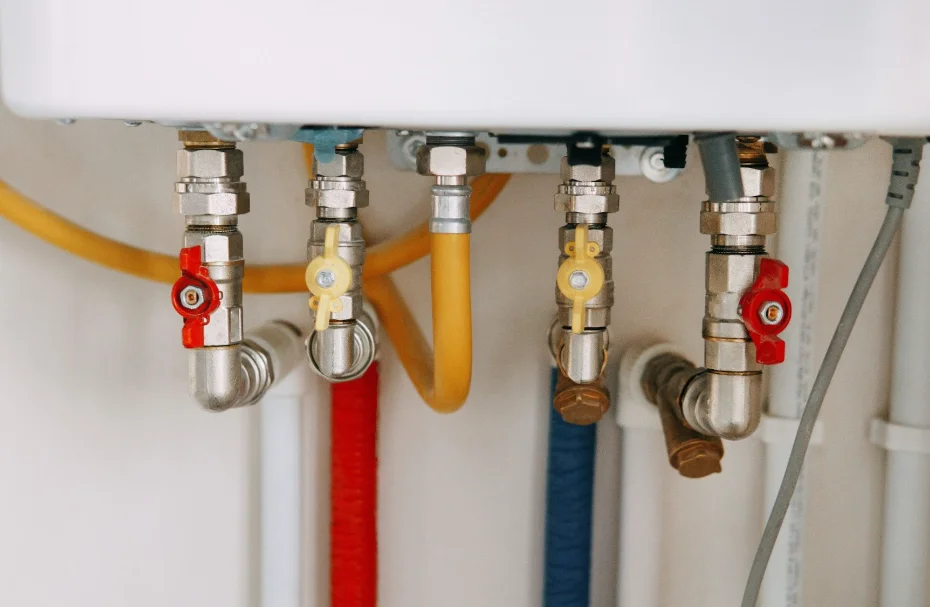A water heater’s pressure relief valve prevents pressure buildup and overheating. When this small, yet crucial device malfunctions, you may be at risk of endangering your home from potential explosions.
Understanding common pressure valve issues and when to call a professional for water heater repair in Brick Township, NJ, can protect you from potential hazards.
Why the Pressure Relief Valve Matters
The temperature and pressure relief valve (T&P valve) acts as a safety mechanism for a water heater installation. It automatically opens to release excess pressure when the tank becomes too hot or over-pressurized. Without it, pressure could build to unsafe levels, leading to leaks, system failure, or even catastrophic damage.
“A faulty pressure relief valve can put your home at serious risk,” says a licensed plumber. “It’s not something any rational homeowner would want to ignore.”
Leaking Pressure Relief Valve: Causes and Fixes
A leaking pressure relief valve is a common issue. While some dripping is normal, persistent leaks often indicate a problem. This could be due to mineral buildup, excessive tank pressure, or a faulty valve.
Minerals can build up in the pressure relief valve when hard water is present, preventing proper sealing. Meanwhile, if pressure is too high, the valve is at risk of releasing water with more than average frequency. Leaks may also be caused by a worn-out valve, and when it does, it is likely to need replacements.
How to Fix a Leaking Pressure Relief Valve
To start, first check the water pressure in your home. A reading of above 80 psi is too high. When this happens, consider installing a pressure-reducing valve (PRV).
If mineral buildup is the cause of the leak, you may try flushing the water heater as a means to clear excessive sediment.
Should the valve continue leaking once you adapt these, a water heater replacement may be the most straightforward and safest solution.
Stuck Open Valve: Why It’s a Problem
A pressure valve that is stuck open causes water heaters to lose heat faster than usual. This means it is constantly releasing hot water, increasing energy bills and wasting water.
Possible Causes:
- Debris or rust in the valve mechanism
- A damaged internal spring
- High pressure in the tank forces it to open
What You Can Do:
- Clean off visible rust or debris from the valve.
- Lift and release the lever to test the valve—if water continues to flow, it may need replacement.
- Call a professional for assessments and water heater maintenance.
Too Much Pressure? What It Means for Your Home
Excessive water pressure is a serious problem. High pressure can damage the tank, leading to leaks and potential failure.
Signs of High Pressure:
- Frequent leaks from the T&P valve
- Popping or banging noises from the heater
- Faucets spit water when turned on
To solve this problem, first measure your home’s water pressure. The range should fall between 40-60 psi. High water pressure warrants installing a pressure-reducing valve on your main water line. A new water heater may be needed for better pressure regulation should the issue persist.
Signs Your Water Heater Might Explode
Although rare, water heater explosions do happen. A faulty pressure relief valve is one of the leading causes. If you suspect an issue that may put your water heater at risk of exploding, act fast and call a professional.
Look out for these warning signs:
- Excessive leaking from the pressure valve
- Banging or rumbling noises inside the tank
- Steam or water escaping from the valve
What to Do:
- Turn off the power and shut off the water supply immediately.
- Call a licensed plumber to inspect and replace the valve if necessary.
- Consider upgrading to a newer, safer model if your water heater is old.
Choosing the Right Pressure Relief Valve
If you’re replacing your pressure valve, selecting the right one is crucial.
- Size Matters – Most residential water heaters use a ¾-inch valve.
- Material Options – Brass is more durable than plastic.
- Brand Reliability – Stick with reputable brands that offer quality pressure relief valves.
Hard Water and Pressure Valve Issues
Hard water contains high levels of minerals like calcium and magnesium, which can clog the pressure relief valve over time. Protect your system from the effects of hard water by installing a water softener, flushing the system regularly, and checking the valve for signs of corrosion or blockage.
A faulty pressure relief valve is a serious safety risk that should not be overlooked. If you notice leaks, unusual noises, or signs of excessive pressure, take action immediately. If you’re unsure about your water heater’s condition, schedule a professional inspection today.









